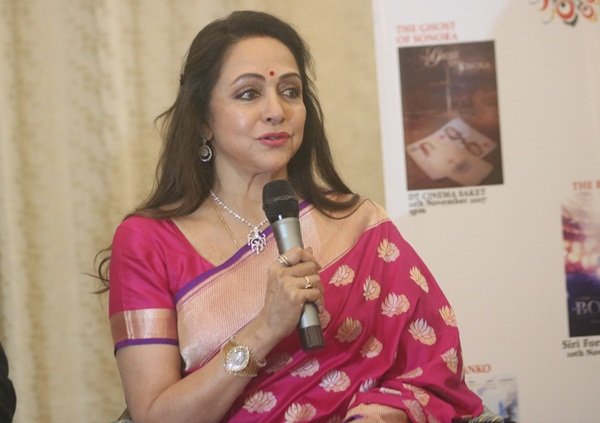Propositioning needs to be handled with tact: Stuntwoman Reshma
Hema Malini (© IANS News)
Mumbai (IANS) – Reshma Pathan, known as the first stunt woman of the Indian film industry who carried out stunts for ‘Sholay’ on behalf of actress Hema Malini, says no matter which era it is, women get propositioned by men. She says she handled it in a diplomatic way to survive in her time.
As the #MeToo movement has created a collective consciousness and helped women find their voice against sexual harassment at the workplace, Reshma spoke about how she is quite non-judgmental about women who adjust to situations to survive financially.
“I would say these days because of the increasing opportunities, constant talk on gender equality, girls have gained a sense of security. I had to handle every situation diplomatically because I had to run my household. Shaming and questioning a girl’s character was much easier back then,” she said.
“Not that it’s very different now, but it has to be handled tactfully,” said the 65-year-old Pathan in an interview.
With the #MeToo wave hitting India, she said she has seen a positive change.
“I don’t judge anyone because you never know who is under what obligation. Nevertheless, I want to say opportunities have increased. If you project yourself as a ‘no-nonsense’ person, people will think twice before approaching you in a negative manner,” said Pathan.
“Remember, we are women, we are strong and even if we are vulnerable, that is also our strength,” said Reshma, who started her journey as a stunt woman at the age of 14 to support her family financially.
How did she handle being propositioned by film producers and actors?
“Though physically I was strong and I could have punched anyone, I had to run my household. Not that I compromised. I used to tell them, ‘Look I respect you, so please do not do anything that makes me disrespect you and don’t be disgraceful with me,” said Reshma.
In 1968, when stunts and action scenes were mostly a male’s domain, men used to dress as women to do action sequences in films for heroines. But Reshma is said to have been the first woman to attempt stunts for actresses such as Hema Malini, Sridevi, Dimple Kapadia and Meenakshi Seshadri among others.
Safety measures were not as advance for stunt artistes.
Reshma said it was the will to fight “poverty” that gave her courage. But It was quite an unintentional entry into a male-dominated space.
“Of course there were obstacles — gender equality was not practised the way it is today. But we had to start it. If a girl does not set her goal of carving a path that is unexplored, how will you do something different?” she asked.
Why did she not take up acting instead of stunts?
“I started as a junior artiste and back then, the situation wasn’t that flexible. If you have a stamp of a junior artiste, they will not give you the role of an actress. I genuinely had the desire to act, but the only response I used to get is, ‘you do stunts, how will you act?'”
“The same people used to hit on me, saying ‘You’re very beautiful’, ” said Reshma, who feels the industry now celebrates talent without discrimination.
A film ‘The Sholay Girl’, inspired by Reshma’s life, was showcased on ZEE5 on International Women’s Day. Produced by Sai Deodhar, the film has actress Bidita Bag essaying Reshma on-screen.
Asked if she expected a token of appreciation after ‘Sholaya’ , Reshma said: “I do not complain, I started out of need and to survive. Now, someone is making a film on my journey…This is much more rewarding than just winning an award.”
“I know when you get to know someone’s life story, it inspires you to dream big. If I managed to achieve something at a time when the society wasn’t supportive of it, I am sure you can do it today because now, you have an example,” she said while pointing a finger at herself.
(Arundhuti Banerjee can be contacted at arundhuti.b@ians.in)
–IANS
aru/rb/prs
Disclaimer: This story is published from a syndicated feed. Siliconeer does not assume any liability for the above story. Validity of the above story is for 7 Days from original date of publishing. Content copyright AFP.


